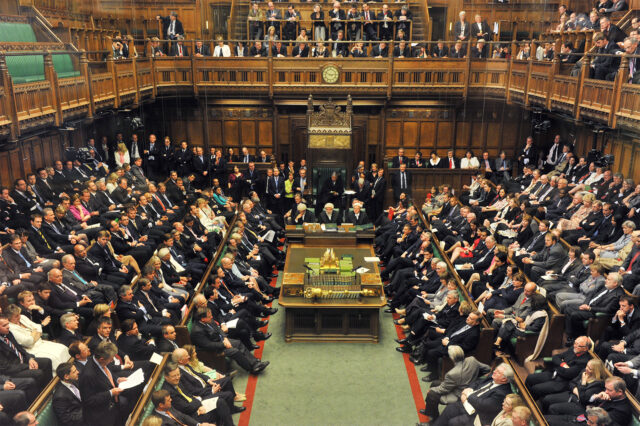Today, the House of Lords Committee on the Fraud Act 2006 and Digital Fraud, chaired by Baroness Morgan of Cotes, will invite submissions to its new inquiry.
Fraud is the most commonly experienced crime in England and Wales, accounting for more than 40% of all crime against individuals, causing losses of billions per year. The pandemic fuelled growth in the use of online services. This dependency on digital technology has left more and more people vulnerable to increasingly sophisticated fraudsters. The impact of fraud on victims can be significant both financially and emotionally.
The committee is considering what measures should be taken to tackle the increase in cases of fraud. It will consider how the provisions laid out in the Fraud Act 2006 are used in practice for the detection, prevention and prosecution of fraud. Crucially, the committee will explore whether the Act is in need of reform in order to tackle fraud committed online or through digital means.
Baroness Morgan of Cotes, Chair of the Fraud Committee, said:
“The amount of fraud being committed is horrifying. It causes billions of lost pounds to the UK economy every year, and for victims it can be harrowing experience and leave a lasting impact on their finances.
“Increasingly sophisticated fraudsters have been targeting people during the pandemic. Around 80% of reported fraud is cyber-enabled and social media is mentioned in tens of thousands of fraud reports.
“Our committee would like to hear from a diverse a range of individuals and organisations and we’re particularly keen to receive submissions from victims of fraud.”
Read the call for evidence and find out how to make a submission. The deadline for submissions is midday on 22 April 2022.
The Committee is happy to receive submissions on any issues related to the subject of the inquiry but would particularly welcome submissions on the questions listed below:
Fraud Landscape
- What fraud risks are UK a) individuals, b) the Government and c) businesses particularly vulnerable to today, and what are the reasons for this?
- What future economic and technological developments are likely to impact how fraudsters seek to commit crime over the next five to ten years, and how might these be prepared for and mitigated? What role can technology and tech companies play in combatting fraud across this timescale?
- Is fraud and its victims treated as a priority? If not, what are the reasons for this. The Committee is particularly interested in responses that can explain any barriers preventing effective counter-fraud cooperation within Government, law enforcement, the public sector and the private sector.
- What is the role of international actors in the UK’s fraud landscape? What are the barriers to tackling borderless fraud?
Action to Tackle Fraud
- How effective is the current structure for policing fraud? How successful are the City of London Police, including Action Fraud and the National Fraud Intelligence Bureau, at executing their role as the lead police force for fraud?
- Are sufficient resources available to Government organisations (such as the Serious Fraud Office and Crown Prosecution Service) and wider police forces to tackle fraud and support victims, and how should this be addressed if not? Answers need not be limited to financial resources.
- What are the responsibilities of the private sector in protecting the public against digital fraud? How can a balance be achieved between the need to tackle digital fraud whilst supporting the growth of these sectors? To what extent is work done to combat fraud across the private sectors undermined by siloed or independent working practices?
- What are the legislative or regulatory impediments to sharing fraud risk data across and between the private and public sectors? For example, to what extent does General Data Protection Regulation (GDPR) limit data sharing?
- What is the role of the individual in relation to fraud? Are consumers well informed about the risks of fraud and how to prevent them? If not, which bodies or organisations should do more to ensure this? What are the most effective methods of educating the public about fraud crime and prevention?
Legislative Remedies
- What is your assessment of the Fraud Act 2006? What has been the impact of the Act and is it having any unintended consequences; if so, what are these?
- Is existing legislation effective in tackling the increase in modern forms of fraud? If not, is there a legislative remedy, or should fraud be addressed primarily through implementation of existing provisions? Answers may refer to existing mechanisms such as increasing the scope and powers of regulators. You may refer to any legislation and are not limited to the Fraud Act 2006.
- Is the current system in place for prosecuting fraud cases working effectively? If not, what are the key barriers to prosecution?
- Are sanctions and penalties for criminals who commit fraud an effective deterrent against future criminal activity, and if not, what might be more successful? Respondents may choose to refer to penalties imposed by the judicial system or by specific sectors.
Best Practice
- What lessons can be learned from effective policy interventions and schemes both in the UK and overseas?
- Can you suggest one policy recommendation that the Committee should make to the Government?




